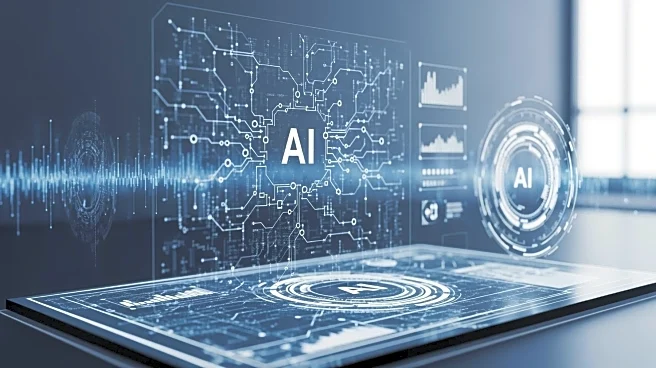What's Happening?
B2B marketers are increasingly integrating AI into their operations, leading to significant changes in agency relationships. According to Marketing Week's 2025 State of B2B Marketing research, 15.2% of surveyed marketers have reduced agency spend due
to AI usage, while only 1.9% have increased it. Larger organizations are more likely to reduce agency spend compared to SMEs. Companies like Datel are advancing their AI maturity by implementing 'digital twins' for each role, enhancing productivity and collaboration. Meanwhile, cybersecurity firm NCC Group remains cautious, exploring AI's collaborative potential without altering agency partnerships. Exclaimer, another firm, uses AI to improve efficiency but maintains strategic agency relationships to leverage creativity beyond AI's capabilities.
Why It's Important?
The integration of AI in B2B marketing is reshaping how companies allocate resources and interact with agencies. This shift could lead to reduced agency dependency, impacting the agency industry and prompting a reevaluation of their roles. As AI becomes more embedded, agencies may need to focus on strategic and creative contributions that AI cannot replicate. This transition highlights the growing importance of human creativity and judgment in marketing, even as AI tools become more prevalent. Companies that successfully balance AI and human elements may gain competitive advantages, while those that fail to adapt could face challenges in maintaining effective marketing strategies.
What's Next?
As AI continues to evolve, B2B marketers may further adjust their agency relationships, potentially leading to increased collaboration with freelancers who can efficiently use AI tools. Agencies might need to demonstrate their ability to stay ahead of AI trends and offer unique strategic insights. The industry could see a shift towards more transparent and collaborative partnerships, with agencies focusing on areas where AI falls short. This evolution may also prompt discussions on pricing and value, as brands seek to ensure they receive maximum benefits from agency collaborations. The ongoing development of AI could lead to new opportunities for innovation and growth in B2B marketing.
Beyond the Headlines
The ethical and legal implications of AI usage in marketing are significant concerns for brands, with transparency being a key issue. As AI adoption grows, companies must navigate these challenges to maintain trust and credibility. The rise of AI also underscores the need for a balanced approach that values human creativity alongside technological advancements. This balance is crucial for fostering innovation and ensuring sustainable growth in the marketing industry. The evolving landscape may also influence talent development, as marketers need to acquire AI-related skills to remain competitive.















